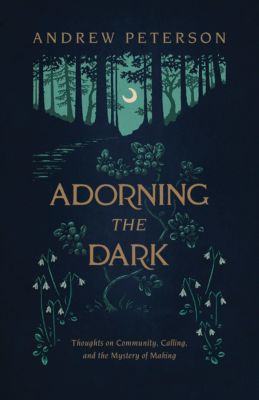
As Christians ponder how best to share their faith with friends and family, some may find it helpful to look up in wonder—not just to God but also to the stars.
By Aaron Earls
What did you feel when you saw the recent images from deep in space taken by the James Webb space telescope like the one above? For most, the scenes of sparkling stars and towering cliffs of space clouds evoked a sense of awe and wonder.
Often when we get new glimpses of outer space or some astrological event like an eclipse occurs, the public is captivated and can’t help but discuss the beauty and majesty on display.
As Christians ponder how best to share their faith with friends and family, some may find it helpful to look up in wonder—not just to God but also to the stars.
Evangelistic hesitancy
A recent Evangelism Explosion study conducted by Lifeway Research found Christians admit they aren’t actively sharing their faith.
Around half of Christians in the U.S. say, in the past six months, they’ve had a conversation about faith (53%) or shared about what God has done in their life (52%) with a non-Christian friend or family member. Fewer than half say they’ve shared a Bible verse or story (46%), shared an invitation to a service or program at church (43%), or shared how to become a Christian (38%) with a loved one in the same time frame. Christians are even less likely to have done any of those with a non-Christian stranger.
Despite this hesitancy among Christians, most Americans are open to faith conversations, according to a previous study from Evangelism Explosion and Lifeway Research. Half of Americans (51%) say they are curious about the religious devotion of others, but that number jumps to 60% of the religiously unaffiliated. More than half of the religiously unaffiliated (52%) say their Christian friends rarely talk about their faith.
More than half of religiously unaffiliated Americans (52%) say their Christian friends rarely talk about their faith, while 60% say they are curious about the religious devotion of others. Click To TweetA 2016 Lifeway Research study found fewer than 1 in 4 unchurched Americans say their Christian friends talk about their faith too much. Around 4 in 5 say they don’t mind their friend talking about their faith if they really value it.
Many Americans, including some of the non-religious, say they spend time wondering if they’re sure they’ll go to heaven when they die. Just 37% of all Americans and 47% of the religious unaffiliated say they never give any thought to their eternal destination, according to a 2020 Lifeway Research study.
One way Christians could turn their conversations with others to the topic of heaven is by turning their eyes to the heavens.
Space: An evangelistic frontier
Scripture often presents creation as having an evangelistic voice. In Psalm 19, David declares:
The heavens declare the glory of God,
Psalm 19:1-2,4, CSB
and the expanse proclaims the work of his hands.
Day after day they pour out speech;
night after night they communicate knowledge.
…
Their message has gone out to the whole earth,
and their words to the ends of the world.
In Romans, Paul explains how the world we see reveals characteristics of the God we cannot see. “For his invisible attributes, that is, his eternal power and divine nature, have been clearly seen since the creation of the world, being understood through what he has made. As a result, people are without excuse” (Romans 1:20, CSB).
Almost 3 in 4 Americans (72%) say the organization in the universe makes them think there’s a creator who designed it, including 46% of non-religious Americans. Click To TweetCreation declares who God is and what He’s like and cuts through any of the excuses people may use to deny His existence. Photographs from space often point people beyond the far reaches of the universe.
When NASA released the Webb telescope image of the Carina Nebula, YouGov asked survey respondents for their reactions. Americans described the photo as “magnificent,” “beautiful,” and “breathtaking”—words Christians often use in worship of God.
A 2014 Lifeway Research study found most Americans say the world around us causes them to reflect on who made it all. The non-religious are less likely than others, but many still see a Creator behind creation. Almost 3 in 4 Americans (72%) say the organization in the universe makes them think there’s a creator who designed it. Non-religious Americans are more divided, but 46% still agree while 40% disagree.
As Americans ponder the glories of the sky, they may be more open to talking about how those beautiful galaxies came to be. — @WardrobeDoor Click To TweetAdditionally, various studies indicate younger generations are more open to the supernatural and spiritual. They may not be more Christian, but they are less convinced of the claims of materialism. According to Lifeway Research, the youngest U.S. adults, those 18-34, are more likely than the oldest U.S. adults, those 65 and older, to believe there is more to life than the physical world and society (87% v. 79%).
As Americans ponder the glories of the sky, they may be more open to talking about how those beautiful galaxies came to be. Drawing on the inherent wonder elicited by breathtaking scenes in nature may be an effective modern evangelistic strategy.











